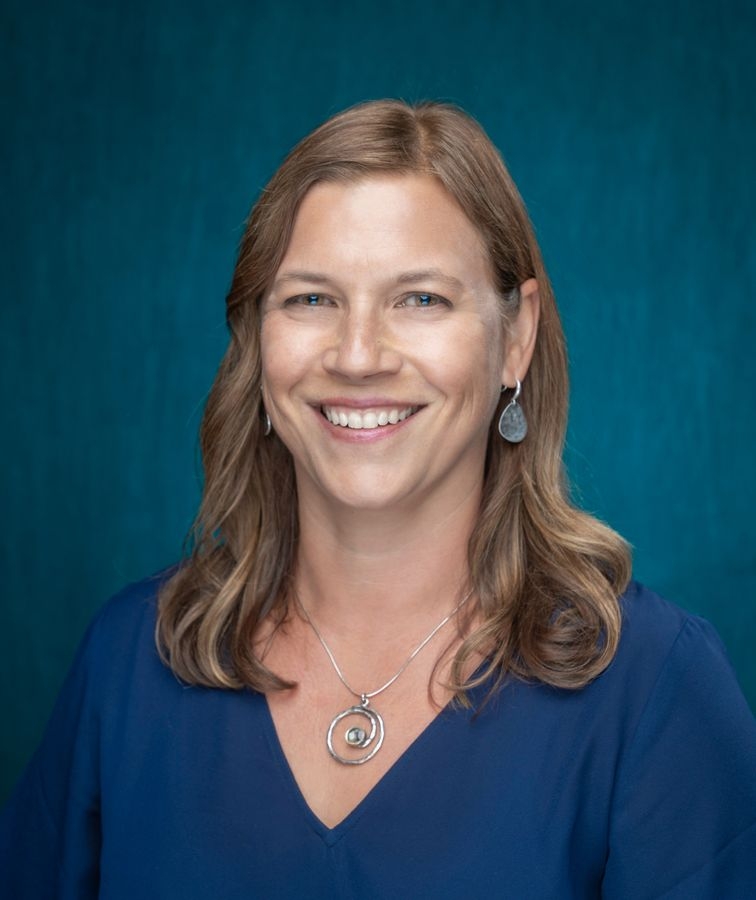Jennifer C. Biddle
Associate Professor
Dr. Jennifer Biddle earned her M.S. in Freshwater Ecology and Ph.D. in Public Policy from George Mason University, and her research lies at the confluence of science, public policy, and public administration, with expertise in collaborative partnerships. Her scholarship assesses relationships between polycentric governance design features and policy outputs (e.g. regulations, incentives). In her recent longitudinal analysis of the Chesapeake Bay Watershed Agreement, she developed performance indicators to operationalize theoretical concepts to promote cross-case comparisons in support of polycentric governance theory building. Her previous professional experience involved advising clients on Clean Water Act permitting and regulations at a consulting firm outside of Philadelphia, Pennsylvania, and assisting state agencies to implement programmatic goals at the U.S. Environmental Protection Agency in Washington, D.C. These experiences, working in both private and public environmental sectors, helped her develop a balanced perspective on the practical constraints and political challenges that arise when implementing policies that impact coastal resources. In her teaching, she integrates her policy analysis expertise and public administration experience to break down complex concepts into relatable terms. Dr. Biddle received teaching awards from UNCW’s Seahawks Advancing Interdisciplinary Learning (SAIL) program and the Center of Teaching Excellence for engaging students in applied learning activities. Dr. Biddle was recently elected President of The Coastal Society (TCS), a national nonprofit that seeks to address pressing coastal issues through education, dialogue, and networking and serves as the faculty supervisor for UNCW’s TCS student chapter that supports wise use of coastal environments.
Education
PhD in Public Policy, George Mason University
M.S. in Environmental Science and Policy, George Mason University
Specialization in Teaching
I hear and I forget. I see and I remember. I do and I understand.
~CONFUCIUS
As an educator my objective is to pave the path for student learning. I leverage my ability to appeal to a wide variety of learners by integrating applied learning techniques using real-world examples and hands-on application. I find when students relate to information in a meaningful way, they demonstrate higher levels of competency by increasing their application and acquisition of course content. My commitment to applied learning is demonstrated through my participation in workshops and trainings, utilization of applied learning techniques in the classroom, and collaboration with faculty on class projects.
Establishing common ground and teaching cultural responsibly highlights another teaching objective of mine. Considering multiple perspectives fosters this awareness of others and deepens student understanding in societal issues. I challenge students to seek out other perspectives when formulating their own through research, public speaking, and open dialogue. In the classroom, we discuss controversial topics and current events to develop a common understanding about coastal issues in a safe learning environment where students feel comfortable sharing their ideas.
Research Interests
Dr. Biddle's core research centers around understanding how governance attributes affect water resource management and sustainability by examining the complex relationships between institutional arrangements, policy outputs, and environmental outcomes.
Key Research Themes:
Polycentric Governance: Investigating how distributed governance systems (polycentricity) can help build or block adaptive capacity using indicators of institutional attributes that lead to effective coordination versus problematic fragmentation.
Water Utility Management: Assessing how autonomy and governance structures impact water utility effectiveness, examining insights from U.S. water utility managers on operational decision-making and system performance.
Collaborative Governance: Analyzing watershed partnerships and collaborative regimes, identifying factors that improve their effectiveness and developing measures like goal specificity as proxies for environmental improvements.
Applied Research: Beyond academic publications, her reach seeks to bridge theoretical understanding of governance systems with practical applications and development of performance indicators. She communicates practical research through partnerships with NC Sea Grant, the Chesapeake Bay Program, local government, and civic organizations, including work on public-private partnerships for stormwater management, brownfield redevelopment policy, and water quality assessment for impaired waterbodies.
Professional Service
I was elected as the President of The Coastal Society (TCS) nonprofit in January of 2025. My responsibilities as President, are to guide delivery of programming consistent with The Coastal Society (TCS) mission to: 1) facilitate partnerships, 2) convene stakeholders, and 3) foster discussion and discovery of solutions to coastal problems. They accomplish this by hosting Regional Forums to share information and tools for coastal management professionals to address pressing issues like shoreline erosion and sea level rise, micro plastics and marine debris, etc... They also host Margaret Davidson Coastal Career workshops for young professionals in the field to help them network.
As President, I developed a 3 year action plan to deliver programming focused on raising TCS visibility, growing memberships, and building partnerships. In this first year, I plan to raise visibility of TCS by hosting a MAD workshop and Forum at UNCW in Discovery Hall. It will be delivered with the help of MCOP student body and faculty, as well as UNCW student chapter of The Coastal Society.

